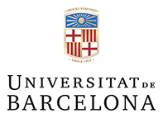Research interests:
Omar Vergara is currently developing his PhD in the areas of Plant Ecophysiology and Phenomics with the consolidated research group of Crop Ecophysiology. He has been working and acquiring experience for two years with that group and previously he had been working in the area of Phytopathology in the same department of Plant Biology. At present, Omar Vergara has been awarded with a doctoral fellowship. The main research line in his PhD is the study of the ecophysiological mechanisms of acclimation to different stressor conditions such as biotic stress, water and nutrient-deficiency stress. These studies are paramount as climate change will impact (or even it impacts at present) markedly on crop yields by the increases in several stress conditions. In this sense, the development of high-throughput field phenotyping systems are expected to play a pivotal role for the better understanding of crop performance. For this reason, the employment of thermal, digital and spectral data in addition to the conventional field parameters is a fundamental part of our research. The characterization of plant metabolites and isotope composition are also employed for the integration of knowledge of plant status and its physiology.
Recent publications:
-Omar Vergara-Diaz, Mainassara Abdou Zaman-Allah,Benhildah Masuka, Alberto Hornero, Pablo Zarco-Tejada, Boddupalli M. Prasanna, Jill E. Cairns, José Luis Araus. A novel remote sensing approach for prediction of maize yield under different conditions of nitrogen fertilization. Frontiers in Plant Science (2016) in press.
-N. López-lópez, G. Segarra, O. Vergara, A. López-Fabal, MI. Trillas. Compost from forest cleaning green waste and Trichoderma asperellum strain T34 reduced incidence of Fusarium circinatum in Pinus radiata seedlings. Biological control, 95 (2016): 31-39.
-Yousfi, S. Kellas, N. Saidi, L. Benlakhel, Z. Chaou, L. Siad, D. Herda, F. Karrou, M. Vergara, O. Gracia, A. Araus, J.L. Serret, M.D. Comparative performance of remote sensing methods in assessing wheat performance under Mediterranean conditions. Agricultural Water Management (2016) 164, 137-147.
-B. Zhou, A. Elazab, J. Bort, O. Vergara, M.D. Serret, J.L. Araus. Low-cost assessment of wheat resistance to yellow rust through conventional RGB images. Computers and Electronics in Agriculture 116 (2015): 20-29.
-Zaman-Allah, M., Vergara, O., Araus, J. L., Tarekegne, A., Magorokosho, C., Zarco-Tejada, P. J., A Hornero, A Hernández Albà,B Das, P Craufurd, M Olsen, B M Prasanna & Cairns, J..Unmanned aerial platform-based multi-spectral imaging for field phenotyping of maize. Plant methods, 11 (2015), 35.
-O. Vergara-Diaz, S. C. Kefauver, A. Elazab, M. T. Nieto-Taladriz, J. L. Araus. Grain yield losses in yellow-rusted durum wheat estimated using digital and conventional parameters under field conditions. The Crop Journal (2015) Elsevier. 3-3, pp.200-210.
-O. Vergara-Diaz, N. Marín, F. Chairi, N. Aparicio, MT. Nieto-Taladriz, SC. Kefauver, JL. Araus. Use of full range spectral signature for the high-throughput phenotyping of durum wheat. EPPN Plant Phenotyping Symposium (2015), Barcelona, Spain.
-SC. Kefauver, G. El-Haddad, O. Vergara-Diaz, JL. Araus. RGB picture vegetation indexes for High-Throughput Phenotyping Platforms (HTPPs). SPIE Remote Sensing (2015), Toulouse, France.
-JL. Araus, A. Elazab, O. Vergara, L. Cabrera-Bosquet, MD. Serret, M. Zaman-Allah and JE. Cairns. Chapter 1: New Technologies for Phenotyping; Phenomics, (2015). Springer International Publishing Switzerland.
-JL Araus, A Elazab, O Vergara-Diaz, L Cabrera-Bosquet, MD Serret, M Zaman-Allah, JE Cairns. Capítulo 1, Novas Tecnologias para Fenotipagem (2014). Volum. 1, p. 1.


